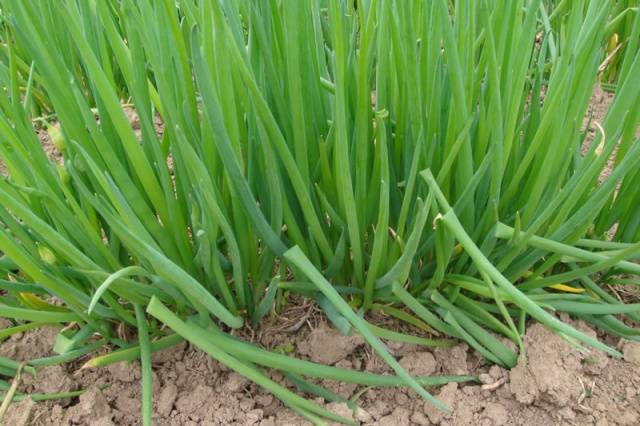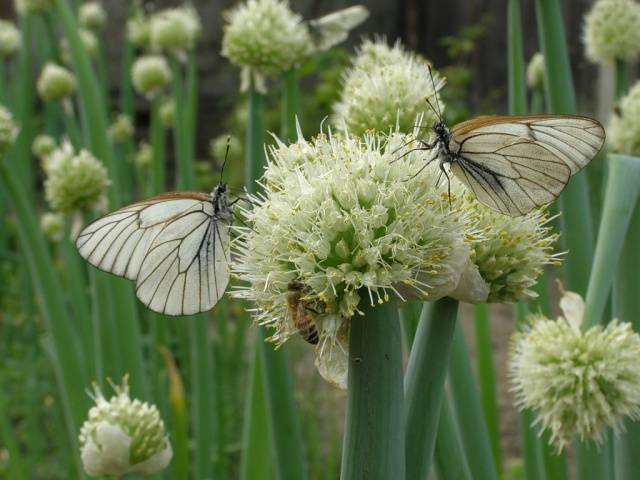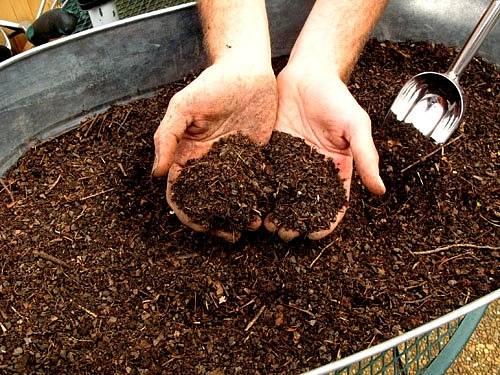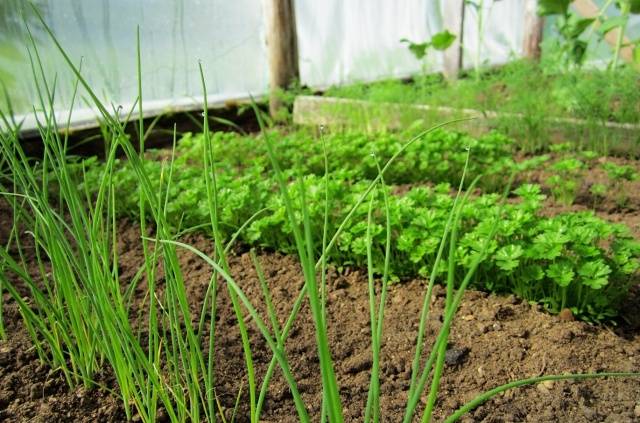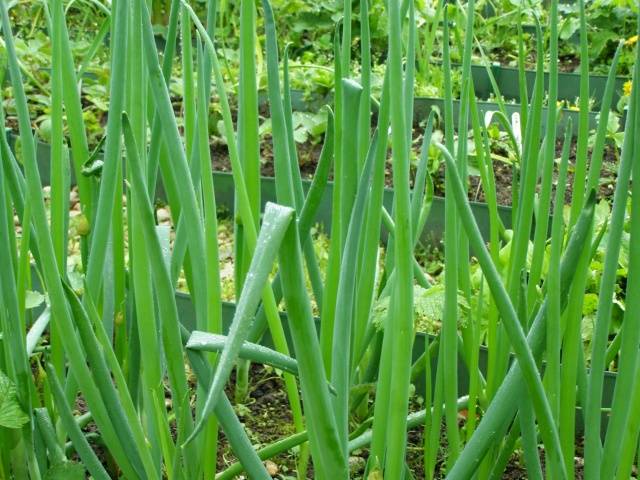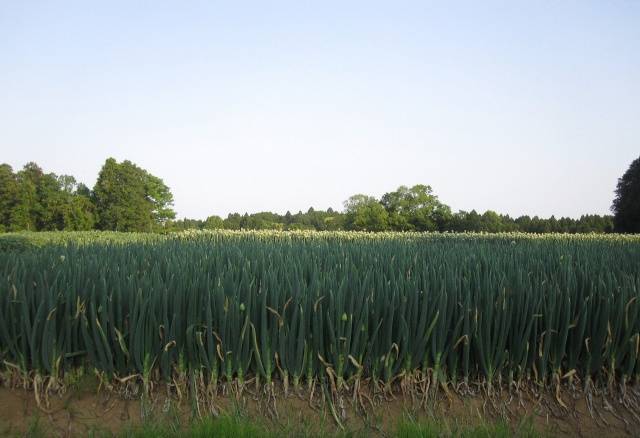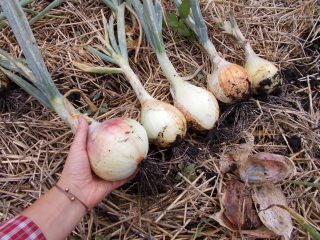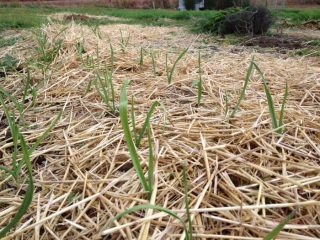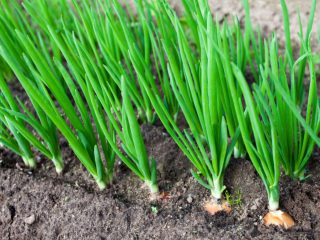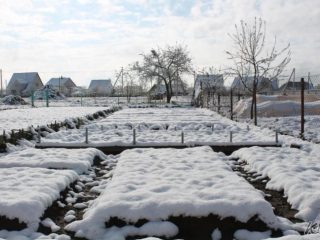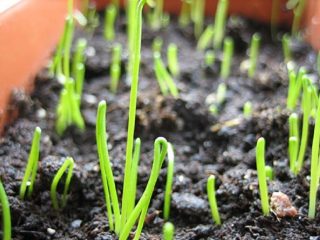Content
Batun onions are valued for their fresh consumption. The green feathers are cut from spring to autumn. For early greens, last year's plantings are used, and in the fall, onions grown with seeds sown in March or April appear in time. This plant can also be sown in early summer and late autumn. When to plant a vitamin vegetable crop, the gardeners themselves decide.
Description
Now the country has 50 registered varieties of onion-batuna. Among the people, the plant was named fisty onion, Tartar, sand onion. The plant is widespread in Asia, now popular all over the world. The onion is a perennial, but the plant is often grown as an annual crop for a quick harvest of green succulent leaves.
The onion bulbs are oblong, with small, thin scales. They are only slightly thicker and denser than the stem formed from the feathers. Not used for storage. The fisty feathers of the batun onion grow up to 40-60 cm, with a diameter of up to 2 cm. They are rich green in color, juicy, with a delicate, not very pungent taste. This property differs the onion from the onion or shallots. 30-40 shoots are obtained from one bush. Young leaves are frost-resistant, withstand cold snaps up to -8 degrees, rich in vitamins C, A, B.
In the second year, the onion, grown from seeds, releases an arrow with a peduncle, up to 50-60 cm. The inflorescence is an umbrella of many white flowers. In one place the bush grows up to 7 years, but gradually degenerates. The most abundant harvest of green onions is obtained in the second or third years of crop growth. After that, the bush is either completely dug out, or planted. The collected seeds serve as seed for propagation.
Batun onions reproduce not only by planting seeds, but also by dividing the bush. Growing onions in spring through seedlings is used to accelerate the ripening of its greens. Seeds are sown in June or before winter so that the greens grow in early spring.
Growing a culture with seedlings
For the rapid ripening of onion leaves in the current year, seeds are sown in March or April. Growing onion seedlings with seedlings makes it possible to avoid diseases in the early stages of development and accelerate the production of greens. The annual crop is harvested along with the bulbs.
Soil preparation
Having decided when to plant the onion, gardeners prepare containers, drainage material and soil for seedlings.
- Sod soil and humus are mixed equally;
- A glass of wood ash and 80 g of nitroammophoska are added to the bucket of the composition;
- If the garden soil needs to be disinfected, it is steamed in a water bath for 30-40 minutes or watered with a pink solution of potassium permanganate.
Drainage is placed in the container - pebbles, agroperlite, pieces of polystyrene from under the packaging, broken ceramics. A prepared substrate is poured on top, which is moistened before sowing the seeds.
Seed preparation and sowing
Now in the trading network there are many preparations with which you can process the seeds of onion-batuna before sowing, referring to the instructions.
- Traditionally, onion seeds are soaked in a pink solution of potassium permanganate for 15-20 minutes for disinfection;
- After that, they are placed on a soft material at the bottom of a bowl of water or placed in water in small bags for a day. The water will have to be changed twice;
- Wet onion seeds in a bag are kept in the refrigerator for 48 hours, then carefully dried and sown;
- Onion seeds are buried 2-3 cm.The distance between the rows of plants is 5-6 cm;
- The soil is slightly compacted, sprinkled with coarse sand on top and moistened through a sprayer.
The container is covered with plastic or glass to create a warm, humid greenhouse atmosphere. For germination, onion seeds need to provide a temperature of 18-21 0FROM.
Sprout care
The first shoots of onion-batun, grown for seedlings at home from seeds, appear in 11-17 days. The containers are transferred to light, but cool, up to 10-11 0C, place. The daytime temperature should be no higher than 16 degrees, and the nighttime - 13 degrees. Onion seedlings develop well if they are provided with 14-hour daylight hours with the help of supplementary lighting with a phytolamp or LED lamp.
- Water the sprouts of the onion-batuna moderately. It is necessary to carefully monitor that the soil does not dry out or become waterlogged;
- After 7-10 days, the first plant feeding is carried out. First, the superphosphate solution is introduced separately, taking into account the proportion of 2.5 g per 1 sq. m. Also fertilized then with potassium sulfate;
- When the first true leaf of the onion grows, the seedlings are thinned out. Excess shoots are removed, leaving a distance of 3 cm between seedlings.
The onion, grown from seeds on a feather, must be hardened before planting in the ground. They start by systematically opening the vents, letting in cool air. Then the onion seedlings are taken out into the open air, first in the daytime, and with warming, containers with sprouts are left overnight.
Plants in the beds
A two-month-old seedling of onion-batun grows well and gets stronger by June, when it needs to be planted in the garden. Plants should have 3-4 true leaves and long fibrous roots. The thickness of the plant stem at the base should be 5 mm.
Choosing a soil for a crop
The onion is very picky about the soil. Onion leaves are poured only on nutritious soils, with abundant, but not excessive watering. The acidity of the soil is also important for onions. For this type of onion, slightly acidic or neutral soil is suitable. The culture gives the best yields on sandy loam and loam.
- In the fall, 1 sq. m in a bucket of humus or compost, 25 ammonium nitrate, 30 g superphosphate, 20 g potassium sulfate;
- You cannot plant onions in the area where carrots, any onions, garlic, cucumbers were grown last year. Common pests can remain and spoil the crop.
Landing
A place for seedlings of onion-batuna can be chosen not as carefully as for onions. And in partial shade, it will grow tall and juicy.
- Between the rows for planting seedlings of onion-batuna, 20-30 cm are left;
- The depth of the hole is 11-13 cm, a handful of wood ash is thrown to the bottom;
- The plant is planted vertically, compacting the soil around the stem;
- Rows of onion bushes are watered;
- The earth in the rows is mulched with a 1-centimeter layer of humus.
Watering and feeding
It is advisable to water the onion with warm water in such volumes so that the soil is moistened by 17-19 cm.If there is no rain, water it more often, creating the required conditions for the plants. When planting plants on a garden bed, one of the organic fertilizers is applied with the first watering.
- A liquid mullein is diluted in water in a proportion of 1 part of organic matter to 10 parts of water;
- Poultry droppings are diluted 1:15. The solution with droppings is infused for 10 days, and then the plants are watered with it;
- Two weeks later, the onion is fertilized with wood ash, adding 50-70 g under each plant.
Plant protection
Insecticides are used against onion flies, onion moths and onion weevils, which feed on onion leaves, according to the instructions.
Hom, Oxyhom and other copper-containing fungicides will serve as protection against peronosporosis, a grayish mold on the leaves of the plant.
Vitamin greens will decorate the summer and autumn table already in the year of sowing the seeds.And next spring, the hardy plant will delight you with a new portion of vitamins.
